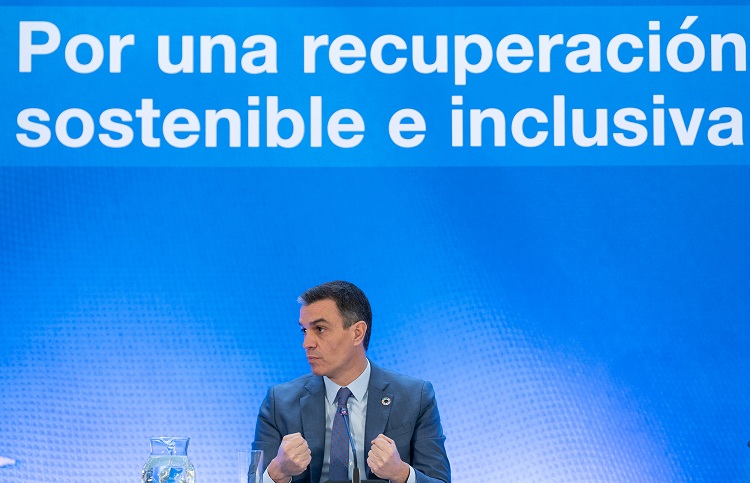The Diplomat
The President of the Government, Pedro Sánchez, assured yesterday during his participation by videoconference in the European Council on COVID-19 that the rate of vaccination in our country is “above the European average” and Spain “will reach the vaccination targets” set by the EU.
The rate of vaccination “is good and we are ready to receive more vaccines”, the head of the Executive assured the European leaders. According to Sánchez, 1,103,301 people have already received their first dose of the vaccine in Spain, which represents 2.3% of the population and is “above the European average”. He also said that more than 49,000 people have already received both doses.
For this reason, he added, the government is “confident” that Spain “will achieve the vaccination targets” set by the European Union on 19 January, which provide for the vaccination of at least 80% of health and social professionals and 80% of the population over the age of 80 in March, and at least 70% of the adult population in summer. For the time being, the vaccines already authorised by the European Medicines Agency alone could vaccinate 450 million people, 80% of the EU population.
On the other hand, the President of the Government yesterday insisted on the need to establish a European vaccination certificate recognised by all countries “with a view to its interoperability” and warned that the recovery of border mobility is essential for the economy, which is why he called for “finding ways to promote international travel in a safe way” within the framework of the Schengen area and the single market.
“The situation is terrible in most of our countries”, he said. “However, we also find ourselves for the first time with a powerful weapon in our hands: the vaccine”, so “there is reason for hope”, concluded Sánchez, who also recalled that “Europe is not an island” and that the Council of Ministers approved last Tuesday the Solidarity Vaccination Plan to facilitate fair, affordable and universal access to the vaccine.
During yesterday’s meeting, EU leaders reached a “unanimous” agreement to “prioritise” the use of rapid antigen tests “in case of limited capacity to perform nucleic acid amplification tests” needed for PCRs, and called for “mutual recognition of test results for SARS-CoV2 infection transmitted by certified health organisations”, considering it “essential to facilitate cross-border movement, tracing and treatment of cross-border contacts”, according to the EU Council. They also discussed the proposal for a European vaccination certificate, submitted last week by Greece.







